Dudley Ramsden had the final say on nearly every move made by Nisa-Today's for almost 30 years. That all changed when the Costcutter merger was rejected and, on November 28, he stepped down as executive chairman to take on the less hands-on role of group honorary president last month.
In an exclusive interview with The Grocer two days later, he is adamant the decision was his and in no way hastened by the collapse of the merger attempt in October - or an overly single-minded approach to the business.
However, he concedes that he may have been perceived as dictatorial. "Yes, I would admit to that. I've always run Nisa in an autocratic style, because I started it. However, I'd like to think everyone had total confidence in me."
Certainly without Nisa-Today's, the independent sector would have lacked its biggest weapon in the battle against the supermarkets.
Since Ramsden and Peter Garvin set up the Nisa side of the business in 1977, the buying group has built up a membership of nearly 1,000; moved from being a pure retail buying group into retail distribution, too; and added a wholesale buying division (Today's) and retail symbol group business.
Ramsden's mission throughout was to get the best prices possible for the members, he says. "All we did for the first 10 years was negotiate terms. Now, we turn over £1bn and make a profit of £1m to £2m, just enough to keep the bank manager happy, and pass the rest back to our members in the prices."
However, the increasing power of the supermarkets has forced the business to rethink its strategy. The attempted tie-up with Costcutter this summer was supposed to be part of the solution. Its failure, dogged by cartel allegations and press leaks, is a setback it will take time to get over.
Ramsden points the finger at one particular board member with a chip on his shoulder who, he says, "leaked the first offer from investment bank Kaupthing to the press within 30 minutes of us leaving the meeting.
"He was on the phone to the press after every other meeting. How can you work in a goldfish bowl like that?"
While he vehemently denies allegations that Costcutter members were blocked from defecting to Nisa-Today's, he admits there would have been other difficulties had the deal gone through.
"I can see we would have needed an ideology change. The new company would have had to have been a commercial trading company. Kaupthing wouldn't have paid all that money for anything else."
This would have meant convincing members to pay more for their goods in order to drive profits and possibly go on the acquisition trail. Not an easy task. He disagrees the members should have been consulted.
"That's what the board's there to do. We acted correctly. I can't see it could ever have been done differently."
Thirty years ago, 100 shares in Nisa were worth £100. Just prior to the proposal they were worth £15,000. Had the deal gone ahead anyone with 100 shares in the business would have been paid £50,000 in cash and their shares would have been worth £35,000. So Ramsden, having paid £100 for his shares in 1977, would be sitting on a profit equivalent to £84,900.
But he insists his support for the merger was in the interest of all members and, going forward, economies of scale are paramount. "We have to be open minded. I don't think Nisa always needs to be a mutual, for instance. If an offer is put forward that is advantageous, we may have to consider selling the shares," he says.
"We also seriously have to look at buying members. We can't do that at the moment, because we don't have the funds, so that would have been an advantage of the new company."
Another key issue for Ramsden is the discrepancy in prices asked of independents and supermarkets.
"We got hold of a cost sheet from a supplier and found there was a 23% difference in cost on some products. Needless to say we sent it on to the Competition Commission."
He is confident that in Neil Turton, acting chief executive and the man Ramsden earmarked as his successor, he has found someone capable of driving these changes. "He's going to be under pressure - I think there's a concern about life at Nisa after me - but he wants it. I've no doubt he'll do a cracking job."
You get the sense, though, that Ramsden is concerned about the speed at which a 'democratic' Nisa-Today's will operate. Decisions once made by himself instantly will now go through a nominations committee or a number of board members.
It's clear Ramsden is keen to retain an active role. "I don't want to have to account for my hours, but I want to have a meaningful role. I want to continue chairing the wholesale and retail boards, and we're building a new office block so I want to chair that committee to help with the financing. There also have to be some future buying alliances, and I want to be involved there too."
So while he says he's looking forward to spending more time with the kids and he's keen to play a bigger role in his family businesses in the north, you can be sure this isn't the last we'll see of Ramsden at Nisa-Today's.
As he himself says: "You're not going to get another Dudley Ramsden."n
In an exclusive interview with The Grocer two days later, he is adamant the decision was his and in no way hastened by the collapse of the merger attempt in October - or an overly single-minded approach to the business.
However, he concedes that he may have been perceived as dictatorial. "Yes, I would admit to that. I've always run Nisa in an autocratic style, because I started it. However, I'd like to think everyone had total confidence in me."
Certainly without Nisa-Today's, the independent sector would have lacked its biggest weapon in the battle against the supermarkets.
Since Ramsden and Peter Garvin set up the Nisa side of the business in 1977, the buying group has built up a membership of nearly 1,000; moved from being a pure retail buying group into retail distribution, too; and added a wholesale buying division (Today's) and retail symbol group business.
Ramsden's mission throughout was to get the best prices possible for the members, he says. "All we did for the first 10 years was negotiate terms. Now, we turn over £1bn and make a profit of £1m to £2m, just enough to keep the bank manager happy, and pass the rest back to our members in the prices."
However, the increasing power of the supermarkets has forced the business to rethink its strategy. The attempted tie-up with Costcutter this summer was supposed to be part of the solution. Its failure, dogged by cartel allegations and press leaks, is a setback it will take time to get over.
Ramsden points the finger at one particular board member with a chip on his shoulder who, he says, "leaked the first offer from investment bank Kaupthing to the press within 30 minutes of us leaving the meeting.
"He was on the phone to the press after every other meeting. How can you work in a goldfish bowl like that?"
While he vehemently denies allegations that Costcutter members were blocked from defecting to Nisa-Today's, he admits there would have been other difficulties had the deal gone through.
"I can see we would have needed an ideology change. The new company would have had to have been a commercial trading company. Kaupthing wouldn't have paid all that money for anything else."
This would have meant convincing members to pay more for their goods in order to drive profits and possibly go on the acquisition trail. Not an easy task. He disagrees the members should have been consulted.
"That's what the board's there to do. We acted correctly. I can't see it could ever have been done differently."
Thirty years ago, 100 shares in Nisa were worth £100. Just prior to the proposal they were worth £15,000. Had the deal gone ahead anyone with 100 shares in the business would have been paid £50,000 in cash and their shares would have been worth £35,000. So Ramsden, having paid £100 for his shares in 1977, would be sitting on a profit equivalent to £84,900.
But he insists his support for the merger was in the interest of all members and, going forward, economies of scale are paramount. "We have to be open minded. I don't think Nisa always needs to be a mutual, for instance. If an offer is put forward that is advantageous, we may have to consider selling the shares," he says.
"We also seriously have to look at buying members. We can't do that at the moment, because we don't have the funds, so that would have been an advantage of the new company."
Another key issue for Ramsden is the discrepancy in prices asked of independents and supermarkets.
"We got hold of a cost sheet from a supplier and found there was a 23% difference in cost on some products. Needless to say we sent it on to the Competition Commission."
He is confident that in Neil Turton, acting chief executive and the man Ramsden earmarked as his successor, he has found someone capable of driving these changes. "He's going to be under pressure - I think there's a concern about life at Nisa after me - but he wants it. I've no doubt he'll do a cracking job."
You get the sense, though, that Ramsden is concerned about the speed at which a 'democratic' Nisa-Today's will operate. Decisions once made by himself instantly will now go through a nominations committee or a number of board members.
It's clear Ramsden is keen to retain an active role. "I don't want to have to account for my hours, but I want to have a meaningful role. I want to continue chairing the wholesale and retail boards, and we're building a new office block so I want to chair that committee to help with the financing. There also have to be some future buying alliances, and I want to be involved there too."
So while he says he's looking forward to spending more time with the kids and he's keen to play a bigger role in his family businesses in the north, you can be sure this isn't the last we'll see of Ramsden at Nisa-Today's.
As he himself says: "You're not going to get another Dudley Ramsden."n







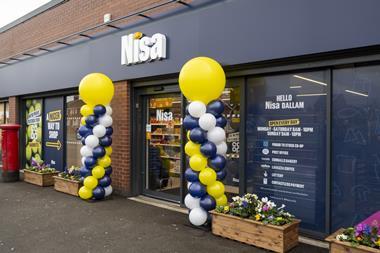
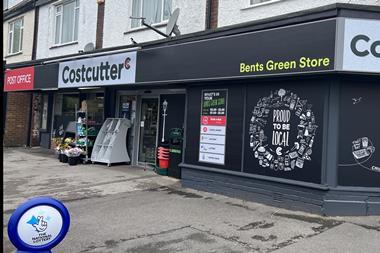
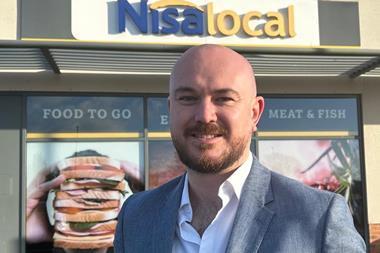

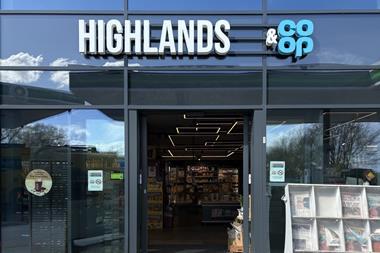
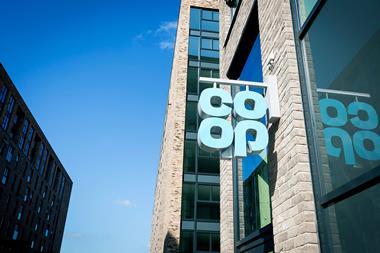






No comments yet